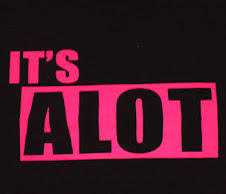2. Artist - The Importance of Roll Deep
People within the scene know Roll Deep not only for being one of the founding crews in grime, but also as a collective with almost as many personnel changes as Destiny's Child/Sugababes. However, to their credibility, where many crews are falling by the wayside,they possess an underestimated quality - continuity.
Formed from the ashes of Pay As You Go crew, Roll Deep were formed in 2002 by the remaining members Wiley, Flo Dan, Target, and Breeze. It was also around this time that Dizzee Rascal was emerging as a young prodigy and was quickly ushered in by Wiley (who over the years, has been seen as the controlling element within the clique). It was this decision that really pushed the crew to the forefront of the grime scene.
Whilst honing their mic skills on pirate radio and performing at garage events such Sidewinder, Roll Deep quickly built up a strong following due to the individual elements that each member brought to the table. Like with any other musical collective, your end product is built on the input and quality of it's members - Roll Deep had this in abundance.
Having seen or listened to any of their shows/sets, it was clear to see that each member was strong enough to stand as an individual artist and still be a success. You only have to see where this took Dizzee Rascal (arguably, it could be seen as he outgrown/outshone the group) but there was plenty to come from where Raskit emerged.
Due to their ever growing popularity, the scene clamoured for hard copies of their radio sets in which they duly released the Creeper mixtape series. To this day, many still believe this to be their best work due to the raw, untamed nature of the beats and lyrics.
By this time, as you would expect, record label A & R's were sniffing around sensing the chance of a bit of easy money. This is where they secured their first major record deal with Relentless Records and subsequently released their much acclaimed (and maligned) debut album In At The Deep End. By this time, Dizzee Rascal had long left the group and had spawned a classic with Boy In The Corner.
Many praised the group for branching out to a more commercial audience but were also criticised for the use of 80's pop samples and cheesy hooks but, to their credit, still kept their integrity with the content of the lyrics. In my opinion, this was, and still is, their best work to date due to the diversity throughout.
In At The Deep End went on to spawn two singles which charted - The Avenue (11) and Shake A Leg (24). In between projects they also released an anti gun crime single Badman which was then included on their next 'album' Rules & Regulations. The group were also nominated for a MOBO award in 2005.
The album deal with Relentless then came to a mutual end which posed a difficult question of direction; do they continue with their chart friendly rap or focus on making a potential classic to match their former crew member? Luckily, they chose the latter and the self funded Rules & Regulations was announced as the notoriously difficult second album and later released on

This is a new section to the blog which puts the spotlight on the defining moments and/or movements which changed the game. If you have any suggestions or feel someone or something deserves an honourable mention, leave a comment against this post.
Let's start the series with what is no doubt universally recognized as the classic grime album since it's conception...
1. Album - The Impact of Boy In The Corner
Unless you had your ear firmly nailed to the ground, the sounds, feel and style of this album had never been heard before. Dizzee stated at the time that he felt his music sounded like 'the end of the world' in which you can see his point. At the time of release, NME described it as 'balaclava-clad gangs of teenagers wiring London's tenement blocks with dynamite and razing them to the ground.' which is difficult to disagree with considering the use of harsh, relentless synth/drum combos, crisp snares and stadium rock-like bass which feel have been put together as if they're fighting for speaker space.
It's a pure unabashed tale of real life struggles as a youth growing up under the pressures of the bright lights of LDN. Topics such as street robbings, under age pregnancy and general street life are all explained with such brutal honesty and transparency.
Now, almost six years on, Boy In The Corner is seen as inspiration for any rising Grime mc. Despite numerous attempts, this album has yet to be bettered and is seen as the ultimate reference point when introducing a listener to the genre.
Boy In The Corner went onto sell over 250,000 copies and was nominated for (and then won) The Mercury Music Prize later that year. It's with this in mind, how strange it is that the general public choose to dismiss Grime as a musical genre when it produces masterpieces such as this.


